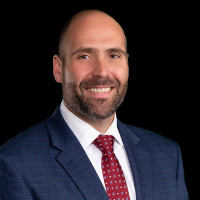Sheldon DUI-DWI Lawyer, South Carolina
Sponsored Law Firm
-
 x
x

Click For More Info:
-
Clekis Law Firm P.A.
171 Church St, Charleston, SC 29401» view mapCriminal Defense Law Clekis Cares. We Listen to You.
Clekis Law Firm has been representing clients for over three decades.
800-725-6591
Chad D. Shelton
Criminal, DUI-DWI, Felony
Chad was born and raised in St. Charles, Missouri just outside of St. Louis. He attended undergrad at Valparaiso University in Northwest Indiana and ... (more)
Olesya Matyushevsky
Immigration, Employment, Divorce & Family Law, DUI-DWI
Status: In Good Standing Licensed: 16 Years
 Nicholas Clekis Charleston, SC
Nicholas Clekis Charleston, SC

